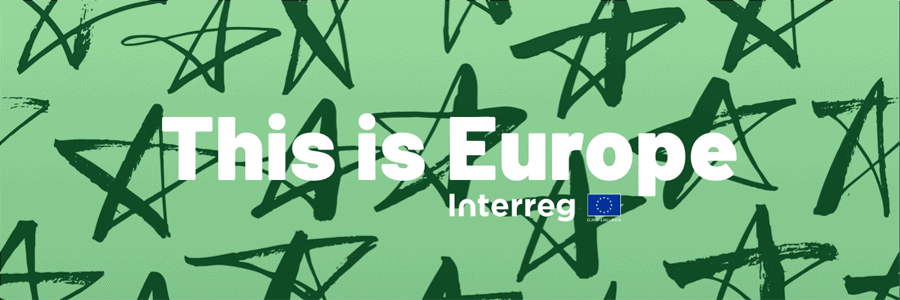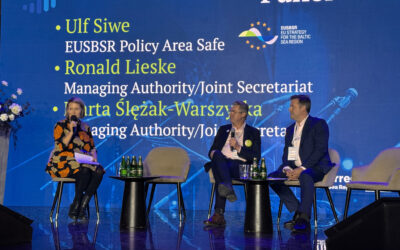As Interreg becomes 30, Interact has launched the production of an audio podcast this year. In fourty minutes you can travel across Europe, learn about great Interreg projects, and get to know other professionals who use Interreg to fulfil their missions. One of the projects presented is cities.multimodal in which people work towards greener mobility in cities – co-funded from our Programme.

This is Europe | The Interreg Podcast
“This is Europe” is bringing you the personal stories of everyday Europeans whose lives are being transformed by cooperation across borders. To meet them, broadcaster Shahida Bari will take you on a journey across Europe, from the Baltic Sea to the Balearic Islands and beyond. You can already listen to the first episode of this brand new podcast on all platforms by visiting its homepage here .
You will hear how the Interreg community is creating a greener Europe. Shahidha Bari hops on her bike to take a tour of Steffen Nozon’s hometown of Rostock in northern Germany. Steffen, an avid cyclist, is a mobility manager transforming his local area into green, car-free ‘living streets’.
Meeting local residents on her bike ride, Shahidha also hears from Stefanie Maack, Communication Officer for the Interreg Baltic Sea Region Programme, who explains that Rostock is just one of ten cities working together to reimagine transport networks in their respective communities. To meet the EU’s 2050 target of carbon neutrality, millions of homes need to be renovated to be greener, smarter and more energy efficient. Thanks to Interreg, small housing associations across the EU are working together to achieve this ambitious goal. To find out more, Shahidha speaks to Rutger Vrielink, manager of strategy and innovation at the Domijn housing association in Enschede, Netherlands.
John Drysdale is an arable farmer on the Balgonie estate in Fife, Scotland. As a self-described shooter, forester and conservationist, John has always been interested in biodiversity. Taking us on a tour of his land, John explains what motivates him to work with Interreg and 10 other farms in five countries to encourage the grey partridge to thrive – a bird which is seen as a reliable indicator of biodiversity. Working with John is Fiona Torrance, from The Game and Wildlife Conservation Trust, who has developed a novel way to count the partridges – armed with a mobile phone and a bluetooth speaker.
In the next episode of “This is Europe” we hear a few stories about how Interreg brings neighbours together. Don’t miss it! Subscribe here.
Article by Eva Martinez (Interact) on interreg.eu. The podcast production was supported by Stefanie Maack (Interreg Baltic Sea Region MA/JS) and Lisa Wiechmann (Hanseatic City of Rostock).






